 Jill Adams
Jill Adams
Jill E. Adams, J.D. has been the Executive Director of Law Students for Reproductive Justice (LSRJ) since September 2006. Prior to that, she served the organization as President of its Board of Directors, intern in the national office, and trainer, facilitator, and speaker on many occasions throughout law school. As ED, Adams oversees fundraising and development, management and operations, programming, finances, and public relations. She also engages in extensive public speaking and writing. Adams is committed to empowering law students, building coalition with other social justice groups, and fostering LSRJ’s long-term sustainability. She further contributes to the reproductive justice movement as a member of the Executive Committee of the California Coalition for Reproductive Freedom, the Steering Committee for Pharmacy Forward: Pharmacist Leadership for Reproductive Health, the Advisory Board of Real Reason, and the Women’s Health Leadership Network of the Center for American Progress. She graduated with honors from the University of Missouri, Columbia School of Journalism in 2000 and from the University of California, Berkeley School of Law in 2006. Adams is licensed by the State Bar of California.
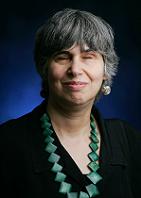
Adrienne Asch is the Director of the Center for Ethics at Yeshiva University in New York. She is also the Edward and Robin Milstein Professor of Bioethics at Yeshiva University and Professor of Epidemiology and Population Health and Family and Social Medicine at Albert Einstein College of Medicine. Her work focuses on the ethical, political, psychological, and social implications of human reproduction and the family. She has authored numerous articles and book chapters, and is the co-editor of Prenatal Testing and Disability Rights and The Double-Edged Helix: Social Implications of Genetics in a Diverse Society. She received her doctorate in social psychology from Columbia University, was a member of the board of the American Society for Bioethics and Humanities, the Clinton Task Force on Health Care Reform, and the Ethical, Legal, and Social Implications Policy Planning Group of the National Human Genome Research Institute. She is a board member of the Society of Jewish Ethics and the American Civil Liberties Union, a fellow at the Hastings Center, and a member of the New York State Task Force on Life and the Law.
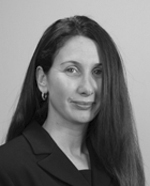 Michelle S. Ballan
Michelle S. Ballan
Michelle Ballan is an Assistant Professor of Social Work at Columbia University School of Social Work. Dr. Ballan worked as a Clinical Social Worker for Safeplace in Austin, Texas and served in this capacity as a curriculum development specialist, group facilitator and sexuality educator for children and adults with developmental disabilities. While employed as a Clinical Social Worker for North Princeton Developmental Center, Ballan provided sexual counseling and case management services to clients with developmental disabilities and mental illnesses. She also served as a clinician for the non-profit agency, Women Helping Women. Prior to obtaining her M.S.W., Ballan was a family support specialist for the New Jersey Brain Injury Association.
 Kim Buchanan
Kim Buchanan
Kim Buchanan is an Assistant Professor of Law at the University of Southern California Gould School of Law. Professor Buchanan specializes in constitutional law, international and comparative human rights law, prisoners’ rights, reproductive rights, race, gender and sexuality. Her current research addresses race, gender and prisoners’ rights against sexual abuse, and the sexual dimensions of gender equality. She teaches constitutional law, reproductive rights, and international human rights law. Before her return to academia, Professor Buchanan worked as a civil litigator at Sack Goldblatt Mitchell in Toronto, where she litigated constitutional claims for welfare and public health benefits, as well as litigating plaintiffs’ civil and constitutional tort claims against public authorities for malicious prosecution, wrongful conviction, and failure to protect. Most recently, she worked as a senior fellow at the Center for Reproductive Rights in New York City, where she authored Women’s Reproductive Rights in the United States, a shadow report to the United Nations Human Rights Committee (the implementation body of the ICCPR) on US noncompliance with its international law obligations to protect reproductive rights. Her publications include Impunity: Sexual Abuse in Women’s Prisons (Harvard Civil Rights-Civil Liberties Law Review, 2007) and Lawrence v. Geduldig: Regulating Women’s Sexuality (Emory Law Journal, 2007).
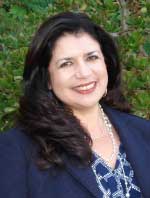 Rocio Córdoba
Rocio Córdoba
Rocio L. Córdoba is Co-Founder and Executive Director of California Latinas for Reproductive Justice (CLRJ). She has served as a reproductive rights/justice, gender equity and civil rights attorney and advocate on the national, state and local levels for over 16 years. Most recently, Córdoba was appointed by Los Angeles Mayor Antonio Villaraigosa to serve on the Los Angeles Commission on the Status of Women. Córdoba recently completed serving her second term as President of the California Coalition for Reproductive Freedom (CCRF) (2002-2006), where she has sought to promote the inclusion of diverse communities of color in its membership, advocacy and policy priorities. She is a Founding Team member of EMERJ (Expanding the Movement for Empowerment and Reproductive Justice) and serves on the national SisterSong Women of Color Reproductive Health Collective’s Management Circle, the National Latina Institute for Reproductive Health Policy Advisory Committee, the California Family Health Council’s Board of Directors, and was a 2005-2006 Fellow with the Women’s Foundation of California’s Women’s Policy Institute, among other leadership positions. Most recently, Córdoba served as Director of Public Affairs for UCLA’s Institute for Democracy, Education & Access (IDEA). Previously, Córdoba served as a Staff Attorney with the ACLU of Southern California and as Director of its pilot Latina Rights Project; handled reproductive rights litigation and advocacy on the national level as a Staff Attorney with NOW Legal Defense and Education Fund and as a Staff Attorney Fellow with the ACLU’s National Reproductive Freedom Project, both in New York; and served as the Kennedy/Coleman Fellow with the ACLU of Illinois in Chicago. She received her J.D. from the University of California’s Hastings College of Law and B.A. degrees from the University of Southern California.
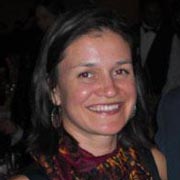 Alegria De La Cruz
Alegria De La Cruz
Alegria De La Cruz is a Staff Attorney at the Center on Race, Poverty & the Environment (CRPE). She joined CRPE in March, 2009. De La Cruz was born in Delano, California. The daughter and granddaughter of farmworker organizers, De La Cruz has spent most of her life working as an activist for social change. After graduating from Yale University with a B.A. in History in 1997, De La Cruz spent three years in Southeast Asia, working in economic development, but it didn’t take her long to see that the challenges developing nations were facing in Asia – poverty, exploitation of marginalized people, environmental degradation – were the same ones facing her own community in the Central Valley of California. After graduating from law school at the University of California, Berkeley, Boalt Hall, in 2003, De La Cruz went on to work at California Rural Legal Assistance in Fresno as an advocate for farmworkers in the Central Valley. De La Cruz serves on the board of Centro Binacional por el Desarrollo del Indigena Oaxaqueno (CBDIO), a state-wide initiative that addresses the legal needs and develops capacity in Indigenous communities throughout California. She was a Roots of Change Fellow in 2008, working in collaboration with other fellows to creatively address the challenges facing our food system. De La Cruz was awarded the 2008 Hon. Thelton E. Henderson Social Justice Prize from Boalt Hall for her work. De La Cruz is the proud mother of Omé, who motivates her to fight for a healthy and sustainable future every day. ¡Si se puede!
 Dázon Dixon Diallo
Dázon Dixon Diallo
Dázon Dixon Diallo, MPH, is the Founder and President of SisterLove, Inc., the first and largest women’s AIDS organization in the Southeast region of the United States. In addition to her duties with SisterLove, as an adjunct faculty member, Dixon Diallo teaches “Women’s Health and Development” as part of Morehouse School of Medicine’s Master of Public Health Program, and the Comparative Women’s Studies Program of Spelman College. She is also the former Women’s Programs Manager for the National Center for Human Rights Education. In 2002, she led her organization to open a satellite program office in the Mpumalanga Province of South Africa, where they provide capacity building programs for over 50 local HIV/AIDS service organizations. In Atlanta, Dixon Diallo continues to motivate activists with her weekly radio program for Black women, “Sistas’ Time” on WRFG/89.3 FM. She is a community organizer, creating coalitions and networks locally, nationally and internationally. She has coordinated delegations of African-American women to Uganda, Egypt, China, Brazil, Jamaica and South Africa.
Netsy Firestein
Netsy Firestein is the Founder and Director of the Labor Project for Working Families. The Labor Project is a national non-profit organization working with labor unions to negotiate and advocate for better work/family policies including child care, paid family leave, eldercare and flexible work hours. The Labor Project maintains the only database of contract language on work/family issues and publishes a quarterly newsletter, Labor Family News. Most recently the Labor Project played a key organizing role in the campaign that passed the nation’s first paid family leave legislation in California. Firestein has over 20 years experience working with labor on work/family issues. She has worked with many local and International unions and labor/management committees on developing work/family contract language and programs. Firestein does trainings around the country on labor and work/family issues and is the co-author of numerous articles on these issues.
 Risha Foulkes
Risha Foulkes
Risha Foulkes is a Skadden Fellow at the ACLU Women’s Rights Project. Her work at the ACLU Women’s Rights Project, includes working to improve workplace health and safety for low-income immigrant women working in unregulated agricultural and nail salon jobs in New York and New Jersey. Both farmworkers and nail salon technicians handle chemicals that may be carcinogens or reproductive toxins, harmful to themselves or their children, according to her project proposal. The ACLU’s Women’s Rights Project was co-founded in 1972 by Ruth Bader Ginsburg. Through litigation, community outreach, advocacy and public education, WRP empowers poor women, women of color and immigrant women who have been victimized by gender bias and face pervasive barriers to equality.
Lisa Fu
Lisa Fu is a representative of the California Healthy Nail Salon Collaborative. The California Healthy Nail Salon Collaborative was created in 2005 out of growing concern for the health and safety of nail salon and other cosmetology workers, owners, and consumers. “The Collaborative” uses policy advocacy, research, industry advocacy outreach, and education strategies to address health and safety concerns facing these communities. The Collaborative’s mission is to advance a preventive environmental health agenda for the nail salon sector in California. The Collaborative’s members include nail salon workers and owners, non profit and community organizations focused on environmental and reproductive health/justice, labor and Asian American community health, educational institutions, and government agency allies.
 Angela Harris
Angela Harris
Angela Harris is a Professor of Law at UC Berkeley School of Law (Boalt Hall). Before joining the Boalt faculty in 1988, Angela Harris served as a law clerk to Judge Joel M. Flaum of the U.S. Court of Appeals for the 7th Circuit, and as an attorney in the San Francisco office of Morrison & Foerster. She was a visiting professor at Stanford Law School in 1991, Yale Law School in 1997 and Georgetown Law Center in 2000. Harris’s writing and research focus on feminist legal theory and critical race theory. Her recent publications include Gender and Law: Theory, Doctrine, Commentary (with Katherine Bartlett, 1998) and Race and Races: Cases and Resources for a Diverse America (with Juan Perea, Richard Delgado and Stephanie Wildman, 2000). In 2003 Harris received the Rutter Award for Teaching Distinction, an annual award that honors a Boalt Hall professor who has demonstrated an outstanding commitment to teaching. She also received the 2003 Mathew O. Tobriner Public Service Award, an annual prize that recognizes Bay Area law school professors for their commitment to academic diversity and for mentoring the next generation of lawyers.
 Priscilla Huang
Priscilla Huang
Priscilla Huang is the Policy and Programs Director of the National Asian Pacific American Women’s Forum (NAPAWF). She oversees the reproductive justice, anti-trafficking and emerging immigrant rights programs. She first became involved with NAPAWF when she attended the 2005 Seattle membership gathering, and was instantly hooked. Huang was a Georgetown Women’s Law and Public Policy fellow, and the recipient of Choice USA’s 2007 “Courting Justice” Generation Award. Prior to NAPAWF, she worked on gender-based employment discrimination cases at Equal Rights Advocates, performed policy work at the National Abortion Federation, and served on the national board of Law Students for Reproductive Justice. She coordinated after-school programs at an emergency homeless shelter for women and children as an AmeriCorps volunteer, and worked as a child case manager at a transitional housing program for families with a history of homelessness and domestic violence. Huang holds a law degree from American University, Washington College of Law, where she was a Public Interest/Public Service Scholar. Her work has appeared in the Harvard Law and Public Policy Review, Feministing.com, RH Reality Check, and other publications.
Luan Huynh
Luan Huynh is a Staff Attorney at the East Bay Community Law Center (EBCLC). She recently joined EBCLC as the Shartsis Friese Public Interest Law Fellow in the Income practice. While in law school, Huynh was a member of the National Latino Law Student Association (NLLSA), the National Lawyers Guild, and the Equal Justice Society. In addition, Huynh was comments editor for the Asian Pacific American Law Journal, volunteered at the Sunday Clinic, and clerked for the Working People’s Law Center in downtown Los Angeles. Huynh was previously a district representative for a California assemblymember and a secretary to the Santa Clara County Registrar of Voters before attending law school.
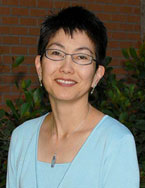 Lisa Ikemoto
Lisa Ikemoto
Lisa Ikemoto is a Professor of Law at UC Davis School of Law. Her scholarship and teaching focus is on bioethics, health care law, and public health law. She has written extensively on genetic and reproductive technology use, the regulation of fertility and pregnancy, and race and gender disparities in health care. Her interest in bioethics and the ways that race and gender mediate access to and the impacts of technology use date back to her days as a UC Davis law student. Her current work examines emerging issues in regenerative medicine, including stem cell research, and the human tissues market. She also continues to research issues in reproductive justice, health care disparities, and the role of racism in the use of public health powers.
 Sujatha Jesudason
Sujatha Jesudason
Sujatha Jesudason is the Founder and Executive Director of Generations Ahead. Dr. Jesudason has an 18-year advocacy and community organizing background in immigration issues, domestic violence prevention, particularly in the South Asian community, and reproductive justice in communities of color. She began working on the social implications of genetic technologies at the Center for Genetics and Society in 2004, and founded Generations Ahead in 2008. Generations Ahead works with social justice organizations around the country to expand the public debate on genetic technologies. By looking at the benefits and risks of these technologies for different communities we promote policies that ensure full respect and human rights for all people. We work to increase the public awareness of the many social implications of genetics and build the capacity of organizations and leaders to develop more informed positions. By facilitating critical conversations between multiple stakeholders we have increased the number of perspective and voices involved in the national discussions on human genetic technologies.
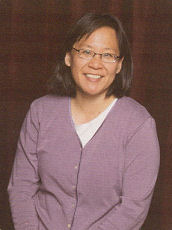 Miliann Kang
Miliann Kang
Miliann Kang is an Assistant Professor of Women, Gender, Sexuality Studies at University of Massachusetts Amherst. Professor Kang’s area of research includes Asian American women’s work; gender and immigration; feminist research methods; race, gender and class intersections.
 Alice Miller
Alice Miller
Alice Miller is a Lecturer in Residence and Senior Fellow for the Thelton E. Henderson Center for Social Justice at UC Berkeley School of Law (Boalt Hall). Previously, Miller was an Associate Clinical Professor of Population and Family Health & International and Public Affairs at Columbia University, teaching in the Columbia’s Schools of Law, Public Health and International and Public Affairs. Miller’s past work includes co-Directing the Center for the Study of Human Rights and the Human Rights Concentration at Columbia University, School of Public and International Affairs (SIPA) at Columbia University from 1989. In 1998-1999, she was a Rockefeller Fellow in the Program for the Study of Sexuality, Gender, Health and Human Rights at the School of Public Health. Miller has over 20 years of policy and advocacy experience with non-governmental organizations, including directing the women’s rights program at the Human Rights Law Group (now Global Rights) [at the Law Group, 1993-98]; Amnesty International USA’s Program against the Death Penalty [1991-1993], and co-founding AIUSA’s programs on women’s rights, and LGBT rights programs. She continues to work with local and international NGOs, including Amnesty International, Human Rights Watch, and local and national NGOs such as the Women’s Institute for Leadership Development (USA), and CREA and TARSHI (India) on human rights issues in the US and globally. Her scholarship and policy work has addressed gendering humanitarian law, safe migration and anti-trafficking policies, criminal law, and specifically abolition of the death penalty, women’s rights, sexual rights, sexual and reproductive health and LGBT rights.
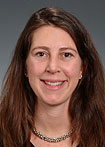 Alexandra M. Minnis
Alexandra M. Minnis
Alexandra M. Minnis is an adjunct faculty in the Epidemiology Division of the School of Public Health at UC Berkeley. Her research focuses on adolescent reproductive health, measuring adherence to contraception, and the association between migration and reproductive health in Mexico and the Mission District of San Francisco. Dr. Minnis’ work examines the measurement of self-reported STI/HIV risk behaviors (such as barrier methods and microbicides) and how structural factors (social networks, immigration, partnership patterns) influence Latino youth’s risks for STIs and pregnancy. She is also pursuing evaluation of audio computer-assisted self-interviewing (ACASI) through a validation study in Zimbabwe using a biomarker of recent sexual activity. In addition to investigating these measurement issues in sub-Saharan Africa, she is examining use of ACASI in a prospective cohort study of women in Bangalore, India.
 Melissa Murray
Melissa Murray
Melissa Murray is an Assistant Professor of Law at UC Berkeley School of Law (Boalt Hall). Her research focuses on the roles that criminal law and family law play in articulating the legal parameters of intimate life. Prior to coming to Boalt, Murray served for two years as an associate in law at Columbia Law School. Murray is a graduate of Yale Law School, where she was Notes Development Editor of the Yale Law Journal. She earned special recognition as an NAACP-LDF/Shearman & Sterling Scholar and was a semifinalist of Morris Tyler Moot Court. Following law school, Murray clerked for Sonia Sotomayor of the U.S. Court of Appeals for the 2nd Circuit and Stefan Underhill of the U.S. District Court for the District of Connecticut. Her recent publications include, “The Networked Family: Reframing the Legal Understanding of Caregiving and Caregivers” in the Virginia Law Review (2008), “Equal Rites and Equal Rights” in the California Law Review (2008), “Strange Bedfellows: Criminal Law, Family Law, and the Legal Regulation of Intimate Life” in the Iowa Law Review (2009), “Disestablishing the Family” in the Yale Law Journal (with A. Ristroph) (forthcoming), and “Marriage Rights and Parental Rights: Parents, the State and Proposition 8” in the Stanford Journal of Civil Rights and Civil Liberties (forthcoming).
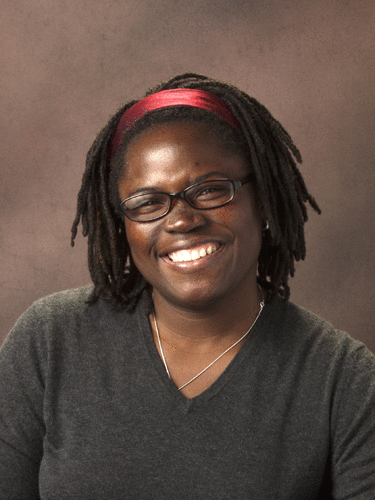 Kimberly Mutcherson
Kimberly Mutcherson
Kimberly Mutcherson is an Associate Professor of Law at Rutgers School of Law – Camden. Professor Mutcherson received her B.A. from the University of Pennsylvania and her J.D. from Columbia University School of Law. As a student at Columbia, in addition to being a Stone Scholar, she co-founded the school’s Women of Color Coalition and co-coordinated the law school’s first conference on women of color and the law. While at Columbia, she worked as an intern for several public interest organizations including the Center for Reproductive Law and Policy, the Legal Aid Society-Juvenile Rights Division, and the American Civil Liberties Union Women’s Rights Project. At graduation, Professor Mutcherson received the Rosenmann Prize for her commitment to public interest law. Professor Mutcherson began her post-law school career as a Kirkland & Ellis Fellow at the HIV Law Project (“HLP”) where she continued to work as a Staff Attorney when her fellowship year ended. At HLP, she focused on impact litigation and policy work for underrepresented populations including women, low-income gay, lesbian and transgendered individuals, and injection drug users. Among other topics, she worked on issues of mandatory HIV testing, under-inclusion of women and people of color in clinical trials, mandatory partner notification, and named-based HIV reporting. She also coordinated HLP’s advocacy training program for HIV-positive women. Before joining the faculty of Rutgers, Professor Mutcherson served as an Acting Assistant Professor of Lawyering at New York University School of Law where she taught legal research and writing and other legal skills to first year law students. She joined the Rutgers faculty in 2002 where she teaches Torts, HIV/AIDS & the Law, and Bioethics, Babies and Babymaking. Her scholarly interests are in health law, family law, and bioethics.
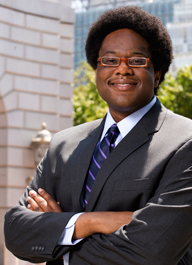 Osagie Obasogie
Osagie Obasogie
Osagie Obasogie is an Assistant Professor of Law at University of California Hastings College of Law. Professor Obasogie’s research looks at the complex interplay between law and society with regards to American race relations. His most recent work involves developing regulatory schemes for reproductive and genetic technologies that encourage innovation, protect vulnerable communities, and promote the public good. His writings have spanned both academic and public audiences, with journal articles in the Yale Journal of Law and Feminism, the Journal of Law, Medicine, and Ethics, and the Stanford Journal of Civil Rights and Civil Liberties (forthcoming) along with commentaries in outlets such as the Los Angeles Times, Boston Globe, and New Scientist. In addition to his work at Hastings, Professor Osagie Obasogie is a Visiting Scholar at the University of California, San Francisco (UCSF) with the Center for Health and Community and is a Senior Fellow at the Center for Genetics and Society.
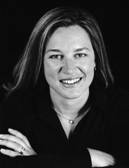 CJ Pascoe
CJ Pascoe
CJ Pascoe is an Assistant Professor of Sociology at Colorado College. Her areas of focus include gender, sexuality, inequality, youth and new media. Her new book on gender in high school, Dude, You’re a Fag: Masculinity and Sexuality in High School is available from the University of California Press. After spending two years as a researcher with the Digital Youth Project, Pascoe is currently finishing two research projects. The first, Logging On, Linking in and Coming Out examines how new media has become a central part of contemporary teen culture, especially in terms of sexuality, dating, and romance. Along with Natalie Boero, Pascoe is also finishing a project entitled Anas, Mias and Wannas: Identity, Practice and Embodiment in Pro-Anorexia Communities, looking at 15 pro-anorexia online discussion groups. The final report from the full Digital Youth Project is now online. The book, Hanging Out, Geeking Out and Messing Around: Living and Learning with New Media will be available from MIT Press.
Ben Peacock
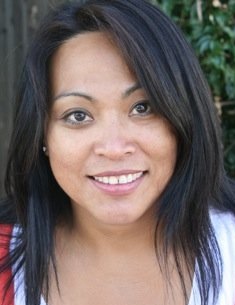 Rhacel Parreñas
Rhacel Parreñas
Rhacel Parreñas is a Professor of American Civilization at Brown University. Professor Rhacel Salazar Parreñas is a sociologist who received her Ph.D. in Ethnic Studies and B.A. in Peace and Conflict Studies from the University of California, Berkeley. She previously taught at the University of California, Davis and University of Wisconsin, Madison. Professor Parreñas is known for her work on women’s labor and migration, speaking on this topic to audiences throughout the United States, Asia, and Europe. Her research fields include gender and feminist studies, the family, migration, international development, and labor.
 Dorothy Roberts
Dorothy Roberts
Dorothy Roberts is the Kirkland & Ellis Professor of Law at Northwestern University School of Law. Professor Roberts joined Northwestern’s faculty in fall 1998 with a joint appointment as a faculty fellow at the Institute for Policy Research. She is a frequent speaker and prolific scholar on issues related to race, gender, and the law and has published more than 60 articles and essays in books and scholarly journals, including Harvard Law Review, Yale Law Journal, and Stanford Law Review, authored 2 award-winning books, and co-edited 5 casebooks and anthologies. She received fellowships and grants from the National Science Foundation, Searle Fund, Fulbright Scholars Program, and Harvard University Program in Ethics and the Professions, and as a visiting professor was the recipient of the Outstanding First-Year Course Professor Award for 1997-98. She is currently conducting research on the effects of child welfare agency involvement in African-American neighborhoods and on race-based biotechnologies.
Franklin Romeo
 Priscilla Smith
Priscilla Smith
Priscilla (Cilla) Smith is a Senior Fellow at the Information Society Project at the Yale Law School. Her current project focuses on ways to shift and expand reproductive rights dialogues within the legal academy, with particular attention to information policy and new technologies. Smith served as the Director of the Domestic Legal Program of the Center for Reproductive Rights from 2003-2007 and was a litigating attorney with the Center for 13 years. Smith litigated cases nationwide, most notably arguing two cases before the United States Supreme Court: Gonzales v. Carhart, 127 S.Ct. 1610 (2007), and Ferguson v. City of Charleston, 532 U.S. 67 (2001). She is the author of “Responsibility for Life: How Abortion Serves Women’s Interest in Motherhood,” XVII BROOKLYN LAW REV. 97 (2008); “Is the Glass Half Full? Gonzales v. Carhart and the Future of Abortion Jurisprudence,” 2 HARV. L. AND POL’Y REV. ONLINE (Spring 2008), available at www.hlpronline.edu; and “Partial-Birth Abortions: The American Federal Courts and a Woman’s Constitutional Right to Abortion,” 1 JOURNAL OF WOMEN’S HEALTH AND LAW 125 (April 2000). Smith also developed and edited the first edition of “What if Roe Fell?” in which the Center examines the probable impact of a reversal of Roe v. Wade in all 50 states. She received her J.D. from Yale Law School in 1991 and her B.A. from Yale College in 1984.
 Dean Spade
Dean Spade
Dean Spade is an Assistant Professor of Law at Seattle University School of Law. Prior to joining the faculty of Seattle University, Spade was a Williams Institute Law Teaching Fellow at UCLA Law School and Harvard Law School, teaching classes related to sexual orientation and gender identity law and law and social movements. In 2002, Spade founded the Sylvia Rivera Law Project, a non-profit law collective that provides free legal services to transgender, intersex and gender non-conforming people who are low-income and/or people of color. SRLP also engages in litigation, policy reform and public education on issues affecting these communities and operates on a collective governance model, prioritizing the governance and leadership of trans, intersex, and gender variant people of color. While working at SRLP, Spade taught classes focusing on sexual orientation, gender identity and law at Columbia and Harvard Law Schools. Spade was recently awarded a Dukeminier Award for his 2008 article “Documenting Gender” and the 2009-2010 Haywood Burns Chair at CUNY Law School, and was selected to give the 2009-2010 James A. Thomas Lecture at Yale.
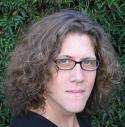 Susan Stryker
Susan Stryker
Susan Stryker is an Associate Professor of Gender Studies at Indiana University – Bloomington. Stryker worked for many years an independent scholar and filmmaker specializing in transgender history, theory, cultural production, and political activism. She earned her Ph.D. in United States History at University of California-Berkeley in 1992, and later held a Ford Foundation/Social Science Research Council post-doctoral research fellowship in sexuality studies at Stanford University. She has held visiting faculty positions at Harvard University, University of California-Santa Cruz, and Simon Fraser University in Vancouver. Between 1999-2003 she served as Executive Director of the GLBT Historical Society in San Francisco. Works include the Lambda Literary Award finalists Gay By the Bay: A History of Queer Culture in the San Francisco Bay Area (1996; co-authored with Jim Van Buskirk) and Queer Pulp: Perverse Passion in the Golden Age of the Paperback (2001), as well as the Lammie-winning anthology (co-edited with Stephen Whittle) The Transgender Studies Reader (2006). With colleague Victor Silverman she co-directed, -wrote, and -produced the Emmy-winning public television documentary Screaming Queens: The Riot at Compton’s Cafeteria (2005). She edited the 1998 transgender studies special issue of GLQ: The Journal of Lesbian and Gay Studies, and also co-edited (with Paisley Currah and Lisa-Jean Moore) the 2008 transgender studies issue of Women’s Studies Quarterly. She has published scholarly articles in Radical History Review, Parallax, GLQ, and other journals.
 Anne Tamar-Mattis
Anne Tamar-Mattis
Anne Tamar-Mattis is the Founder and Executive Director of Advocates for Informed Choice (AIC). As Executive Director of AIC, Tamar-Mattis brings more than seventeen years of experience in community organizing and nonprofit organizational management, primarily with the lesbian, gay, bisexual, transgender, queer and intersex (LGBTQI) and youth communities. She spent six years as the Director of the LYRIC Youth Talkline, a national peer-support line for LGBTQ youth, and she was the first Program Director for San Francisco’s LGBT Community Center. In 2003 she took a brief hiatus to attend law school, graduating from the University of California Berkeley School of Law (Boalt Hall) in 2006. Tamar-Mattis is the author of “Exceptions to the Rule: Curing the Law’s Failure to Protect Intersex Infants,” 21 Berkeley Journal Gender Law & Justice. 59 (2006). Her work in service to the LGBTQI communities has been recognized by Equal Justice Works, the National Lesbian and Gay Law Association, the Pride Law Fund, Uncommon Legacy, and the Sisters of Perpetual Indulgence. Tamar-Mattis has been an involved ally of the intersex rights movement for many years and has worked with intersex community leaders to forge connections between the intersex and LGBTQ civil rights movements.
 Charis Thompson
Charis Thompson
Charis Thompson is Associate Professor in the Departments of Gender & Women’s Studies, and the Co-Director of the Science, Technology, and Society Center at UC Berkeley. She read Philosophy, Psychology, and Physiology at Oxford University, and got her Ph.D. from the Science Studies program at UC San Diego. Before coming to Berkeley, she taught in the Science and Technology Studies Department at Cornell University, at the University of Illinois at Urbana-Champaign, and in the History of Science Department at Harvard University. She is the author of Making Parents: The Ontological Choreography of Reproductive Technologies (MIT Press, 2005), which won the 2007 Rachel Carson Award from the Society for the Social Study of Science. She currently writing a book entitled Good Science.
 Patricia Williams
Patricia Williams
Patricia Williams is the James L. Dohr Professor of Law at Columbia University. Professor Williams practiced as deputy city attorney, Office of the Los Angeles City Attorney; and as a staff lawyer at the Western Center on Law and Poverty. Professor Williams has served on the faculties of the University of Wisconsin School of Law, City University of New York Law School, and Golden Gate University School of Law. She has been at Columbia since 1991. She has served as a fellow at the School of Criticism and Theory, Dartmouth College, and at the Center for Advanced Study in the Behavioral Sciences. She has published widely in the areas of race, gender, and law, and on other issues of legal theory and legal writing. Professor Williams’ books include The Alchemy of Race and Rights; The Rooster’s Egg; and Seeing a ColorBlind Future: The Paradox of Race, Columnist, The Nation. She has served as a MacArthur fellow and is a member of the Board of Trustees at Wellesley College. Professor Williams received her B.A. in 1972 from Wellesley and received her J.D. in 1975 from Harvard.